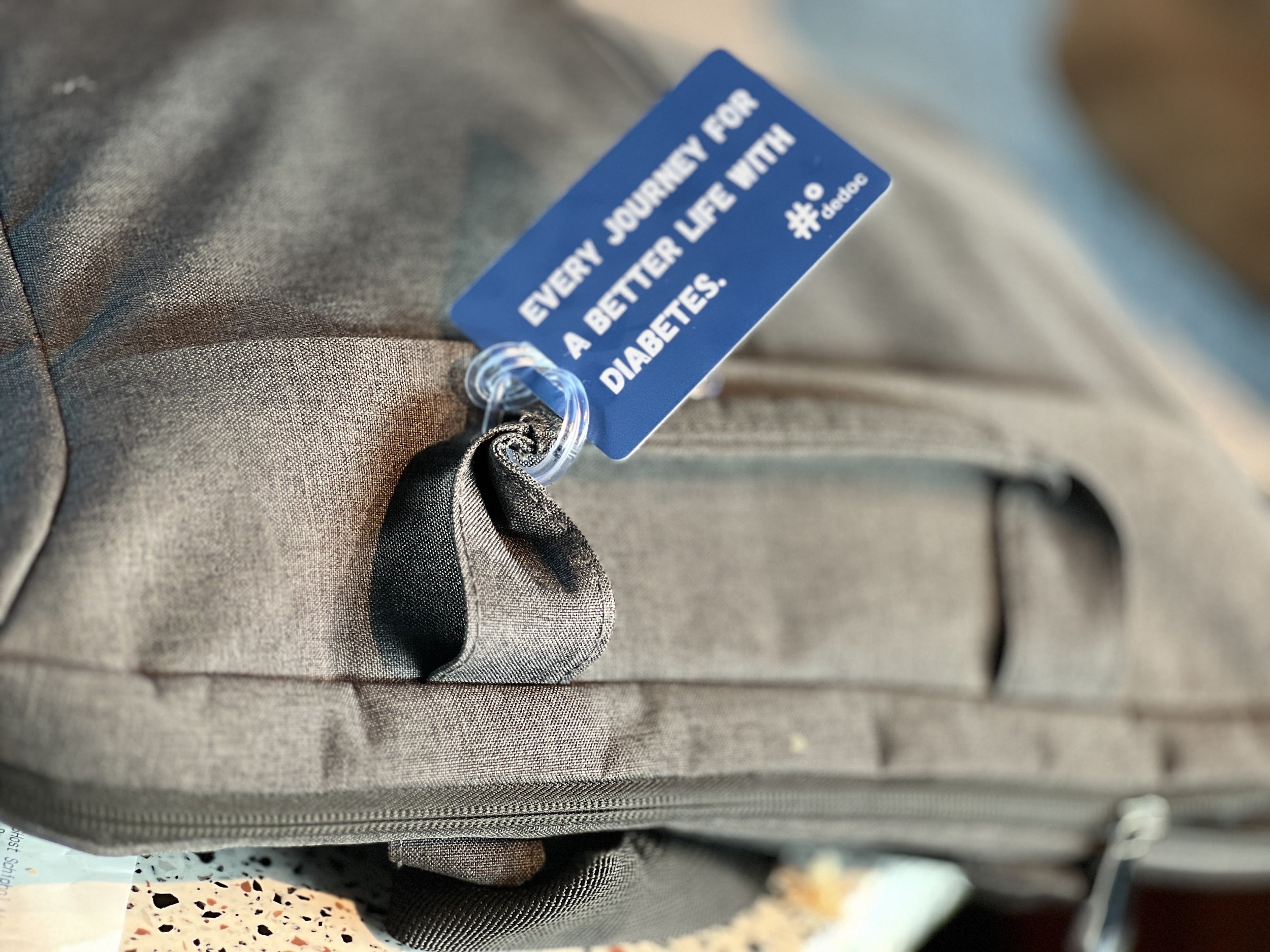Scientific conferences: attending in person or online? A comparison for new diabetes advocates
I recently had the incredible opportunity to attend the International Society for Pediatric and Adolescent Diabetes (ISPAD) 2023 conference in Rotterdam, the Netherlands, as a #dedoc° voice. This was my first time attending in-person with the scholarship.
I want to share some personal reflections on what it’s like to attend events in person and virtually. This is particularly relevant in the current global context, where the option to attend online has become a part of our daily routine. Juggling remote work, outreach, activism and family responsibilities creates a delicate balance.
Our #dedoc° voices — an international network of diabetes advocates — attended ISPAD 2023 in Rotterdam, the Netherlands. Source: Lucía Feito Allonca
Attending a scientific conference in person: the pros and cons
Advantages of attending in person:
Face-to-face interaction: Nothing can surpass the experience of face-to-face human connection. In-person events allow for direct interaction with experts, health care professionals, entrepreneurs, industry representatives, and other activists. Informal conversations during these events can be as valuable as scheduled sessions.
#dedoc° voice and diabetes advocate Lucía Feito Allonca made the most of her time attending ISPAD 2023 in person by visiting the conference’s networking space. Source: Lucía Feito Allonca
Being immersed in the environment: Being physically present enables you to be completely immersed in the conference atmosphere. You can absorb the energy of the event, explore exhibitions, and participate in additional activities and workshops, which aren’t always available online. For example, at ISPAD 2022, some of the sessions I found most interesting to cover were ultimately not available on the virtual platform.
Ideal ground for diabetes projects to flourish: In-person attendance provides an excellent foundation for developing new diabetes projects and activities focused on improving prevention, treatment, education and quality of life for people living with diabetes.
Diabetes advocates and #dedoc° voices Anita, Lucía, and Sana at ISPAD 2023 in Rotterdam, the Netherlands. Source: Lucía Feito Allonca
Disadvantages of attending in person:
Geographic and financial limitations: Attending conferences in person can be expensive. Geographic and economic constraints can mean conferences are not accessible for everyone. Scholarships, like the one I received, are crucial to making these events inclusive.
Time and logistics: Travel, accommodation, and other logistics can consume a significant amount of time and energy. Additionally, in-person participation may require additional days away from work or other responsibilities.
Attending a scientific conference virtually: the pros and cons
Advantages of attending virtually:
Global access: The primary advantage of online events is their global accessibility. Anyone from anywhere in the world can participate without worrying about costs beyond the registration fee for the event itself and the logistical challenges associated with in-person events.
Lucía callibrates her sensor via her insulin pump while working at her desk. Source: Lucía Feito Allonca.
Time flexibility: Virtual events often offer the possibility to access recorded content and participate in discussions at times that are more convenient for the individual. This is beneficial for those with busy schedules or in different time zones.
Disadvantages of attending virtually:
Lack of personal interaction: Despite improved interactivity on the conferences’ virtual platforms, the lack of in-person interaction can limit the depth of connections and the overall experience of the event.
Possible lack of engagement: The comfort of being at home can lead to less active participation. Distractions or missing sessions due to a lack of commitment are challenges that virtual participants may face.
Top tips to maximise your conference experience:
Take advantage of networking opportunities: Whether attending in person or virtually, actively participate in networking sessions. The connections you make here can have a lasting impact on your work.
Be proactive in virtual events: Make the most of the virtual experience by engaging in discussions, asking questions, and utilising the interactivity tools offered by online platforms.
A #dedoc° luggage tag specially designed for diabetes advocates attending scientific conferences. Source: Lucía Feito Allonca
In conclusion, both in-person and virtual events have their advantages and disadvantages. Which one best suits you will depend on your individual circumstances and goals.
Whether you're exploring a convention centre in Rotterdam or participating from the comfort of your home, the key is to make the most of every opportunity to learn, connect, and contribute to the world of diabetes activism.
Let's not forget to actively contribute to our communities by sharing what we've learned with proactivity and commitment!
What are your top tips for diabetes advocates attending scientific conferences, whether in person or virtually? Let us know in the comments.
Found this article insightful? Please spread the word and share it with your network.



